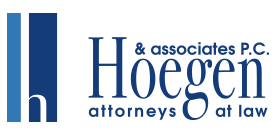With unique advantages and potential for growth, corporations are a popular option for businesses and entrepreneurs. However, new opportunities can naturally bring new headaches if not pursued properly. The complexity surrounding their formation, structure, governance, liability, and taxation can be overwhelming. Hoegen & Associates, P.C., a trusted law firm in Wilkes-Barre, PA, is here to help. In this article, we dive into the subject, unraveling intricacies of corporate formation and a bit beyond.
Do you need an experienced lawyer to help you with your case? Contact us today.
What Is A Corporation?
It sometimes helps us to start at the beginning or absolute basics. A corporation is a legal entity that is separate from its owners, known as shareholders. It offers limited liability protection, allowing shareholders to safeguard their personal assets. Additionally, corporations have perpetual existence, meaning they can continue to operate even if shareholders change over time.
Navigating Federal & Pennsylvania Laws In Corporate Formation
Forming a corporation requires compliance with specific legal requirements. At the federal level, entrepreneurs must submit articles of incorporation to the U.S. Securities and Exchange Commission (SEC), outlining key details such as the corporation’s name, purpose, and capital structure.
In Pennsylvania, entrepreneurs need to follow the guidelines set by the Pennsylvania Department of State. This includes choosing a unique business name, appointing a registered agent, and filing a certificate of incorporation.
Structure And Governance: Establishing The Right Framework
Once a corporation is formed, it must establish a solid structure and governance framework. This involves defining roles and responsibilities within the corporation and creating bylaws that govern internal operations and decision-making processes.
Shareholders, directors, and officers play essential roles in a corporation’s governance. Shareholders elect directors who, in turn, appoint officers responsible for day-to-day operations. Understanding these hierarchical relationships and establishing clear lines of communication and accountability plays a vital role in ensuring efficient corporate governance.
Shielding Personal Assets: Exploring Limited Liability Protection
A large advantage of incorporating is the protection offered to shareholders’ personal assets. Under the doctrine of limited liability, shareholders are generally not personally liable for the corporation’s debts or legal obligations. However, there are exceptions to this rule, such as when a shareholder engages in fraudulent or wrongful conduct.
While limited liability provides important protections, it’s essential for shareholders to maintain corporate formalities and avoid commingling personal and corporate assets. By doing so, they can ensure that the corporate veil remains intact, safeguarding their personal wealth. An experienced lawyer by your side can make a significant impact.
Tax Implications For Corporations: Know Your Responsibilities
Corporations are subject to various federal and state tax obligations.
For federal tax purposes, corporations must file an annual income tax return using Form 1120. They are also required to pay taxes on any profits distributed to shareholders as dividends. Additionally, Pennsylvania levies a corporate net income tax on corporations doing business within the state.
Seeking professional tax advice is highly recommended to navigate the intricacies of corporate taxation effectively and ensure compliance with laws.
Growing & Adapting: Taking Your Corporation Into The Future
As your corporation grows and evolves, it’s important to stay informed about ongoing legal obligations and potential regulatory changes. In this dynamic landscape, businesses must adapt to emerging trends and comply with evolving laws to maintain their competitive edge.
Investing in ongoing legal counsel and staying abreast of legal publications and resources can help corporations successfully navigate these changes and ensure their continued success in an ever-changing business environment.
Bringing The Concepts Together
Forming and operating a corporation requires a comprehensive understanding of the legal framework governing such entities. By unraveling the complexities of corporations, including formation, structure, governance, liability, and taxation, entrepreneurs, shareholders, and business professionals can make informed decisions and position themselves for long-term success. Remember, seeking guidance from legal experts and staying updated on legal developments is crucial for navigating the intricacies of federal and Pennsylvania law effectively.
Hoegen & Associates provides experienced, trusted counsel. Contact our firm today.

